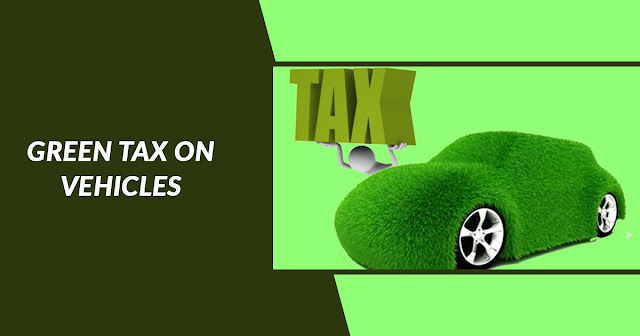In the concern to stop the pollution of the country the central minister of Road Transport and highways Nitin Gadkari has permitted the plan of Green Tax on the older vehicles on 25 Jan 2021. The proposal is being shown for the consultation first prior to the notification.
A draft Voluntary Vehicle Fleet Modernisation Programme was launched by the union govt in 2016. The major goal of the program is to ban 28 million decade-old vehicles on the road.
- The transport vehicles which are older than 8 years to be levied on 10 to 25% of road tax on the restoration time of fitness certificate.
- Personal vehicles to be imposed on the duration of the restoration of the 'Registration Certification' after 15 years.
- The vehicles of the public transport like city buses to be imposed with less Green taxes.
- A green tax of 50% of the road tax is to be imposed on the vehicles enrolled under the highly polluted cities.
- The green tax is being relied on for fuel like petrol, diesel, and the type of vehicles and is known as different.
Importance
The Green tax will assist in diminishing the issue of pollution and will impose a duty on them which is to be paid for the pollution.
The revenue accumulated is to be kept in a separate account and is utilized to handle the pollution. To monitor the emission level it is utilized by the states so as to set up the state of art facilities.
Release From Green Tax
- Vehicles like strong hybrids, electric vehicles, and alternate fuels like CNG, ethanol, LPG, etc.
- Vehicles used for farming like tractors, harvesters, tillers, etc.
Advantages of Green Tax
- To prevent people from utilizing the vehicles that pollute the environment.
- To push and prompt people to switch to newer less polluting vehicles.
- It will lessen the pollution level and impose the person to furnish the amount for polluting the environment.
Nearly 5 % are commercial vehicles out of the total vehicle fleet, which contributes towards 65 to 70% of the total vehicular pollution. The vehicles that are to be made prior to the year 2000 constitute lower than 1% of the total vehicle fleet however it donates towards 15% of the total vehicular pollution.
Moreover, Nitin Gadkari, Union Minister of Road Transport and Highways has permitted the scheme of the deregistration and scrapping of the vehicles which the government buys as well as the Public Sector Undertaking (PSU) that is exceeding 15 years in age. On its arrival, it will come into effect from 1/04/2022.
FM Nirmala Sitaraman states in her Union Budget for the Financial year 2021-22 that the council will precede the voluntary vehicle scrapping policy to the incentivized individual to replace their old vehicles with new ones. Indeed a fitness test is to be furnished post 15 years for the commercial vehicles as well as post 20 years for the personal vehicles.
In July 2019 the motor vehicle act was changed to engage the scrapping scheme. To have modern safer and lower polluting vehicles and electric vehicles.


Comments
Post a Comment